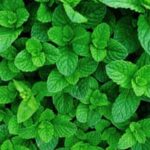Are you looking to start your own vegetable garden in Georgia? Whether you are a beginner or experienced gardener, this Georgia Vegetable Gardening Guide is here to help you with everything you need to know.
From the best location for vegetable gardens in Georgia to dealing with pests and diseases, we have all the information you need to get started. With this comprehensive guide, you’ll be well on your way to growing a successful and bountiful vegetable garden right in your own backyard.
Georgia’s climate and soil conditions create a unique environment for vegetable gardening, and understanding these factors is essential for success. In this article, we will provide valuable insight into the recommended vegetables for Georgia’s climate, along with planting and maintenance tips specific to the region. Additionally, we’ll cover soil preparation and testing, as well as harvesting and storage techniques tailored to the Georgia climate.
Whether you’re interested in planting tomatoes or cucumbers, peppers or squash, this guide will equip you with the knowledge needed for thriving plants. We’ll also provide information on community resources and events that can further support your journey as a Georgia vegetable gardener. Keep reading to discover all the tips and advice you need to cultivate a flourishing vegetable garden in Georgia.
Best Location for Vegetable Gardens in Georgia
When it comes to finding the best location for a vegetable garden in Georgia, there are several factors to consider in order to ensure success. Whether you are gardening in a small urban space or on a larger rural property, choosing the right spot can make all the difference in the health and productivity of your plants.
Sunlight
One of the most important considerations for locating a vegetable garden in Georgia is sunlight. Most vegetables thrive in full sun, which means they need at least 6-8 hours of direct sunlight each day. When selecting a location for your garden, look for an area that receives ample sunlight throughout the day, especially during the growing season.
Water Availability
Another crucial factor to consider when choosing a location for your vegetable garden is water availability. Vegetables need consistent moisture to thrive, so it’s important to select a spot that is easily accessible to a water source, such as a hose or irrigation system. Additionally, consider the drainage of the area – you’ll want to avoid low-lying spots that may become waterlogged during heavy rains.
Soil Quality
The quality of the soil is also an important consideration when determining the best location for your Georgia vegetable garden. Conducting a soil test can help you understand the composition and pH level of your soil, and whether any amendments are needed to improve its quality. Look for an area with well-draining soil that is rich in organic matter, which will provide essential nutrients to support healthy plant growth.
By carefully considering these various factors when selecting a location for your vegetable garden in Georgia, you can set yourself up for success and ensure that your plants have the best possible conditions for thriving. With proper sunlight, access to water, and quality soil, your Georgia vegetable garden can flourish and produce bountiful harvests throughout the growing season.
Soil Preparation and Testing for Successful Vegetable Gardening
When it comes to successful vegetable gardening in Georgia, proper soil preparation is essential. Whether you’re a beginner or experienced gardener, taking the time to prepare your soil will pay off in the long run.
Testing Your Soil
Before planting your vegetable garden, it’s crucial to test your soil. The University of Georgia Cooperative Extension recommends having your soil tested every 2-3 years. Testing will provide valuable information about the pH levels, nutrient content, and any deficiencies or imbalances that need to be addressed. This information will guide you in making informed decisions about which amendments and fertilizers to use for optimal plant growth.
Amending Your Soil
Once you have the results from your soil test, it’s time to amend your soil as needed. Common amendments for Georgia soils include adding organic matter such as compost or well-rotted manure to improve drainage, water retention, and overall soil structure. Additionally, you may need to adjust pH levels using lime or sulfur based on the recommendations from your soil test.
Maintaining Healthy Soil
After amending your soil, it’s important to maintain its health throughout the growing season. Mulching with materials like straw or wood chips will help regulate temperature, retain moisture, suppress weeds, and prevent erosion. Regularly monitoring and adjusting nutrient levels based on plant needs will also contribute to healthy and productive soil for your vegetable garden.
By taking these steps for soil preparation and testing before planting, you’ll set yourself up for a successful vegetable garden that will thrive in Georgia’s climate and conditions.
Remember that careful attention to these processes are crucial when adhering to the georgia vegetable gardening guide provided by specialists at reputable universities such as UGA Cooperative Extension.
Recommended Vegetables for Georgia Climate
When it comes to deciding which vegetables to plant in your Georgia garden, it’s essential to consider the climate and growing conditions. Some vegetables thrive in the hot and humid weather of Georgia, while others may struggle. Here are some recommended vegetables that are well-suited for the Georgia climate:
- Tomatoes: Tomatoes are a popular choice for Georgia gardeners due to their versatility and ability to thrive in warm weather. There are many varieties to choose from, including cherry tomatoes, beefsteak tomatoes, and heirloom varieties.
- Bell Peppers: Bell peppers also do well in Georgia’s climate, especially when planted in a sunny location with well-drained soil. They come in a variety of colors, including red, yellow, and green, and can be used in a wide range of recipes.
- Okra: Okra is a heat-loving vegetable that flourishes in the warm temperatures of Georgia. It’s a staple ingredient in Southern cooking and can be grown successfully throughout the state.
In addition to these vegetables, other suitable options for Georgia gardens include cucumbers, squash, green beans, and sweet potatoes. When planning your garden, it’s important to consider the specific conditions of your location within Georgia and choose vegetables that are best suited to your area.
| Recommended Vegetables | Growing Conditions |
|---|---|
| Tomatoes | Well-drained soil; full sun |
| Bell Peppers | Sunny location; well-drained soil |
| Okra | Heat-loving; warm temperatures |
Planting and Maintenance Tips for Georgia Vegetable Gardens
When it comes to planting and maintaining a vegetable garden in Georgia, there are some key factors to keep in mind. First, it’s important to select the right vegetables for the climate and growing conditions in Georgia. Some of the best vegetables to consider include tomatoes, peppers, squash, cucumbers, and okra. These crops all thrive in the warm, humid climate of Georgia and are relatively easy to grow for beginners.
In terms of maintenance, regular watering is crucial, especially during hot summer months. It’s also essential to keep an eye on weeds and remove them regularly to prevent competition for nutrients. Additionally, proper spacing between plants is important to allow for good air circulation which helps prevent diseases.
Furthermore, it’s important to pay attention to the specific planting dates for each vegetable in Georgia. Planting too early or too late can have a significant impact on the success of your garden. By following a planting schedule specific to Georgia’s climate, you can ensure a bountiful harvest.
| Tip | Description |
|---|---|
| Use mulch | Applying mulch around plants helps retain moisture and suppresses weeds. |
| Rotate crops | Moving crops around from year to year prevents soil-borne diseases. |
| Fertilize properly | Using organic fertilizers or compost will enrich the soil without harmful chemicals. |
Dealing With Pests and Diseases in Georgia Vegetable Gardens
Pests and diseases can pose significant challenges to successful vegetable gardening in Georgia. However, with the right knowledge and strategies, gardeners can effectively manage these issues and protect their crops.
One of the most common pests in Georgia vegetable gardens is the tomato hornworm, which can quickly devastate tomato plants if not controlled. To prevent infestations, gardeners can handpick the larvae off plants and use natural predators such as parasitic wasps to control their populations. Additionally, using floating row covers can help protect vulnerable plants from both insects and diseases.
In terms of diseases, common problems for Georgia vegetable gardens include powdery mildew and blossom end rot. To prevent these issues, it’s crucial for gardeners to practice proper spacing between plants to improve air circulation, avoid overhead watering to reduce moisture on leaves, and maintain a consistent watering schedule to prevent fluctuations in soil moisture levels.
Lastly, practicing crop rotation can help break pest and disease cycles in the garden by preventing the buildup of specific pathogens in the soil. By moving vegetables to different areas of the garden each year, gardeners can reduce the likelihood of recurring pest and disease issues.
By following these tips and staying vigilant during the growing season, Georgia vegetable gardeners can effectively manage pests and diseases to enjoy healthy harvests from their gardens. Utilizing resources such as cooperative extension services or attending local gardening events can also provide valuable information and support for maintaining a successful vegetable garden in Georgia.
Harvesting and Storage of Vegetables in Georgia
Once your Georgia vegetable garden is thriving, it’s essential to know when and how to harvest your crops for the best flavor and storage. Harvesting at the right time ensures that you get the most out of your hard work, while proper storage techniques help keep your produce fresh for as long as possible.
For vegetables like tomatoes, zucchinis, cucumbers, and peppers, it’s crucial to pick them when they are ripe but not overripe. This ensures that you enjoy the best flavor and texture. For root vegetables like carrots, beets, and radishes, harvesting should be done when their tops are visibly poking out of the soil. Leafy greens such as lettuce and spinach should be harvested when they are young and tender for optimal taste.
Proper storage is just as important as harvesting at the right time. Most vegetables can be stored in a cool, dark place with good air circulation. Onions and potatoes should be stored in a dry location with good ventilation to prevent them from sprouting or rotting quickly. Tomatoes should be stored at room temperature until ripe and then refrigerated to prolong their shelf life.
By knowing when and how to harvest your vegetables in Georgia and how to store them properly, you can maximize your yield and enjoy fresh produce for longer periods. It’s a rewarding feeling to enjoy the fruits of your labor well after the growing season has ended.
For more detailed information on harvesting specific vegetables grown in Georgia, refer to resources provided by the University of Georgia Cooperative Extension or other local gardening experts familiar with the unique climate and conditions in this region.
Community Resources and Events for Georgia Vegetable Gardeners
Georgia is a state with a strong community of vegetable gardeners, and there are many resources and events available to support and connect those who are interested in growing their own produce. Whether you’re a novice gardener or an experienced green thumb, taking advantage of these resources can help you learn new tips and tricks and meet like-minded individuals who share your passion for gardening.
Here are some community resources and events that Georgia vegetable gardeners can take advantage of:
- Local Gardening Clubs: Joining a gardening club is a great way to meet other vegetable enthusiasts in your area. Many clubs offer educational workshops, expert speakers, and group gardening projects that can help you expand your knowledge and skills.
- Farmers’ Markets: Visiting farmers’ markets is not only a great way to find fresh, locally-grown produce, but it can also be an opportunity to connect with other gardeners and exchange ideas. Some markets also host workshops or demonstrations on topics related to vegetable gardening.
- Cooperative Extension Services: The University of Georgia Cooperative Extension offers valuable resources for vegetable gardeners, including soil testing services, research-based information on gardening best practices, and workshops on various gardening topics.
- Garden Tours and Open Houses: Many neighborhoods and communities in Georgia host garden tours or open houses where local residents open up their gardens for others to visit. This can be an inspiring way to see what others are growing in your area and gather ideas for your own garden.
By taking advantage of these community resources and events, Georgia vegetable gardeners can continue to learn new techniques, connect with other gardeners, and enjoy the camaraderie that comes from sharing a love of gardening. Whether you’re looking for practical advice or simply want to connect with fellow enthusiasts, there are plenty of opportunities available throughout the state.
Conclusion
In conclusion, the Georgia Vegetable Gardening Guide offers a wealth of information and resources for anyone looking to start or improve their vegetable garden in the state. By following the tips and recommendations outlined in this guide, gardeners can set themselves up for success and enjoy a bountiful harvest of fresh, homegrown produce.
One of the key takeaways from this guide is the importance of soil preparation and testing for successful vegetable gardening in Georgia. With the proper soil amendments and pH balance, gardeners can create an optimal growing environment for their plants to thrive. Additionally, selecting the right vegetables that are well-suited for Georgia’s climate can make a significant difference in the overall success of a garden.
It’s also encouraging to know that there are community resources and events available for Georgia vegetable gardeners to connect with other like-minded individuals, share knowledge, and learn from experienced growers. By participating in these activities, gardeners can expand their skills and find support within their local gardening community. Overall, with dedication, patience, and the guidance found in the Georgia Vegetable Gardening Guide, anyone can cultivate a rewarding and productive vegetable garden in Georgia.
Frequently Asked Questions
What Veggies Grow Best in GA?
In Georgia, the veggies that grow best include tomatoes, peppers, squash, cucumbers, and okra. These warm-season vegetables thrive in Georgia’s climate and soil conditions.
When Should I Start My Vegetable Garden in Georgia?
For starting a vegetable garden in Georgia, it’s best to begin planting in late March to early April. This timing allows for the warmer temperatures needed for seeds to germinate and for plants to flourish.
How Do You Prepare Georgia Soil for Gardening?
To prepare Georgia soil for gardening, it’s important to test the soil’s pH levels and make any necessary adjustments using lime or sulfur. Adding organic matter such as compost or aged manure can also improve the soil structure and fertility for successful gardening.

If you’re looking to get into vegetable gardening, or are just looking for some tips on how to make your current garden better, then you’ve come to the right place! My name is Ethel and I have been gardening for years. In this blog, I’m going to share with you some of my best tips on how to create a successful vegetable garden.





